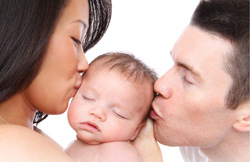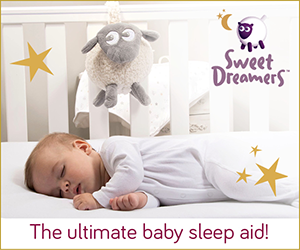What to Expect When New Baby Comes Home

Congratulations on your new arrival! Becoming a parent is one of the most exciting and rewarding experiences in life. Many first-time, and even experienced, parents may admit that they’re unsure about how to properly care for and ensure the health and wellness of their new baby. I firmly believe that the more you know about what to expect from your newborn, the more comfortable you will be. I hope the following information helps prepare you for what to expect when baby arrives and then comes home.
At The Hospital
Soon after delivery, your baby’s weight, length, and head circumference are measured. These measurements are very important as they will be used in the future for comparing and assessing your baby’s health and rate of growth. A doctor will also examine your baby to make sure that everything is okay.
Bringing Baby Home
Healthy full term babies are usually sent home from the hospital or birthing centre within twenty-four to forty-eight hours of birth, or longer if they were born via C-Section. Should there be any problems, if the baby was born prematurely, or if it was a multiple birth, the stay will be longer, depending on the individual situation.
Before taking your newborn home from the hospital, make sure you already have a government-approved infant car seat professionally (properly) installed in your car. The car seat should be placed so that the infant is facing backwards. All infants and toddlers should ride in a rear-facing car seat until at least the age of two years, or until they reach the highest weight or height allowed by the car seat’s manufacturer. Infants and children under age twelve should never sit in the front passenger seat of cars equipped with
air bags, even if he or she is in a car seat. The explosive impact from a deployed passenger side air bag can seriously injure a child.
Getting Used to Baby’s Routines
The arrival of a new baby certainly changes a family’s routine. Parents very quickly realize that their newborn’s patterns may not fit with their usual family routines prior to baby’s arrival. The good news is that most parents get to know their newborn very quickly and get used to his new routines and needs, many of which change over time. Though these early routines can be challenging for new parents to
adapt to, it helps to realize how much your newborn needs you, and that things will soon become a lot more normal. I hope the following information can help you understand some of the new patterns and characteristics a new baby presents.
Feeding Patterns
Generally, babies fed mother’s milk will want to feed about twelve times a day, while babies fed with a milk formula usually demand eight feedings per day. In the coming months, baby will eat increasingly larger meals, faster, and a little less often. Although each baby is different, the number of feedings per twenty-four hours varies with age. Here is a table adapted from the Nelson Textbook of Pediatrics:
| Age | Number of feedings per 24 hours |
| Birth to 1 week | 6 to 10 |
| 1 week to 1 month | 6 to 8 |
| 1 to 3 months | 5 to 6 |
| 3 to 7 months | 4 to 5 |
| 4 to 9 months | 3 to 4 |
| 8 to 18 months | 3 |
Bowel Movements
Bowel movement function varies considerably from baby to baby and can even change in the same baby from day to day. Stool frequency in breastfed babies can vary from as many as fifteen per day to just one bowel movement every few days. The passing of only one stool every few days does not necessarily indicate
constipation.
Sleep Patterns
On average, most newborn infants sleep about sixteen and a half hours per day, but some may sleep as little as nine hours, and others as much as twenty-two hours per day. Infants tend to sleep for short periods of about two hours, and then wake for about thirty minutes before falling back to sleep. Others may nap for
shorter periods while some may soon sleep for stretches of five or six hours. Here is a table of total hours of sleep and naps by age:
| Age | Total Hours of Sleep | Day time hours of sleep (naps) |
| 1 week | 16.5 | 8 |
| 1 month | 15.5 | 6 |
| 3 months | 15 | 5 |
| 6 months | 14.25 | 3 to 4 |
| 9 months | 14 | 3 |
| 12 months | 13.75 | 2 to 3 |
Ontario-based pediatrician Dr. Paul Roumeliotis, Adjunct Professor of Pediatrics, McGill University and Associate Faculty Member at the Johns Hopkins School of Public Health, is a writer, publisher and producer of multi-format health and wellness resources. Dr. Paul’s first published book, Baby Come Home – A Parent’s Guide to a Healthy and Well First 18 Months, focuses on early child development support and its effects. For more information: www.drpaul.com.




